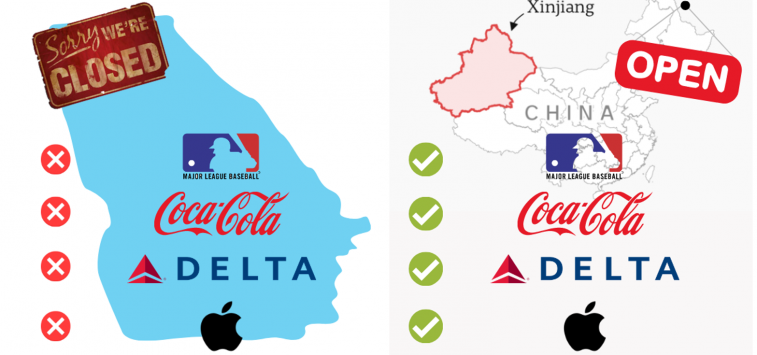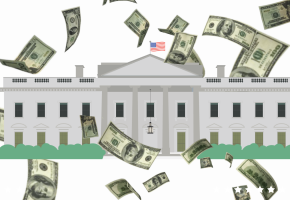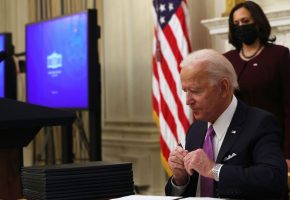
Georgia On Our Minds
During an interview with ESPN last Wednesday, President Biden said he would support Major League Baseball if the league decided to move its All-Star game out of Georgia in protest of the state’s new election law the president called, “Jim Crow on steroids.” Two days later, MLB announced its decision to do just that. Commissioner Rob Manfred claimed the move was “the best way to demonstrate our values as a sport.”
On Tuesday, MLB made no mention of voting rights in its announcement that it was moving All-Star week to Denver, CO. The similarities between the two states’ voting laws raised protestations from several Republicans, including South Carolina Senator Tim Scott, who highlighted that Colorado actually has fewer early voting days and a far smaller African American population, a reference to the outsized economic impact the change is having on black-owned businesses in Atlanta.
Holly Quinlan, president and CEO of Cobb Travel and Tourism, estimated the relocation would create “lost economic impact” of more than $100 million, an impact the Biden administration appears to revel in. On Face the Nation, Biden’s Chair of the Council of Economic Advisers Cecilia Rouse told Margaret Brennan that “[t]here is undoubtedly going to be a cost [for the move], I think that was the point.” Almost 30% of Atlanta’s businesses are black-owned, a statistic that contributed to the city earning the 5th spot on industry lists of Best Cities for Black-Owned Businesses in 2021. But with MLB’s decision to leave, concerns have been raised on the significant impact on these businesses struggling to recover from a year of COVID-related restrictions.
But MLB was far from alone in denouncing the law. Multiple other corporations – including Coca-Cola, Apple, Delta (which initially praised the legislation), and many others – claimed they were morally disgusted by what they claimed was Georgian legislators restricting the rights of the citizens they were elected to represent. But the practices of these global conglomerates elsewhere raise questions on how genuine their outrage may be.
MLB, Coca-Cola, Apple, and Delta have built deep relationships in China while remaining silent on the oppression of democratically-minded citizens and genocide of Uyghurs in the People’s Republic of China. The same week MLB moved out of Georgia “to demonstrate [its] values,” it signed a deal to air games with Tencent, one of China’s largest tech companies. Delta prides itself as “the most Chinese-friendly U.S. airline,” and is so committed to the moniker that it opened two more U.S.-China weekly flights at the height of the COVID-19 pandemic. Perhaps most troubling, while this week, Apple and Coca-Cola executives protested that “the right to vote is fundamental,” six short months ago, the companies openly lobbied to weaken federal legislation that would ban imported goods made with forced labor in China’s Xinjiang region, where the Chinese government forcibly oppresses the country’s Uyghurs. Human rights groups have tied Coca-Cola to sugar sourced from Xinjiang, while Apple’s supply chains touch the region.
The selective outrage these multinational corporations exhibit raises questions on the sincerity of their concern for Georgians, and American consumers in general.



